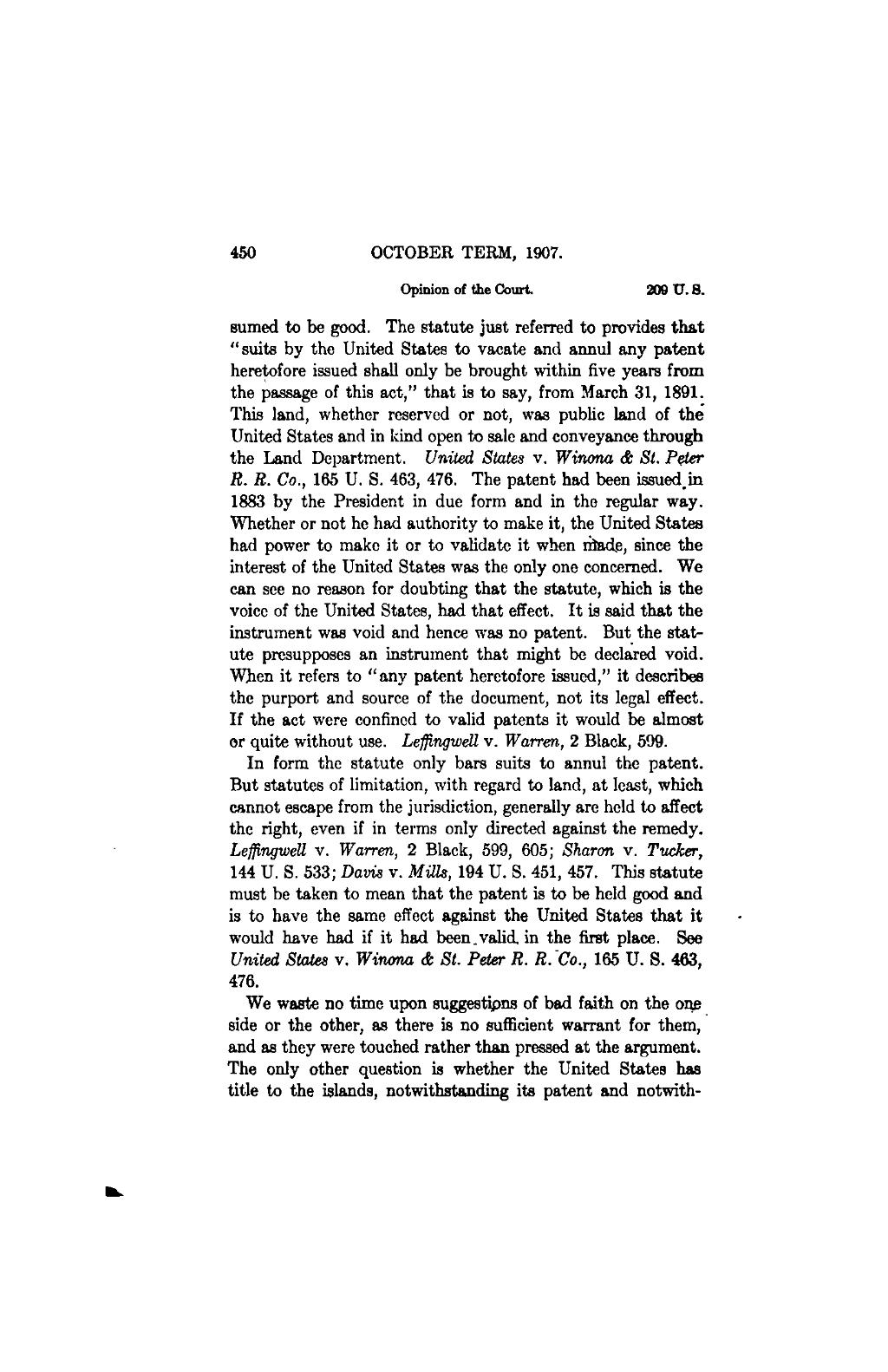450 OCTOBER TERM, 1907. Opinion of the Court 209 U. 8. sumed to be good. The statute just referred to provides that "suits by the United States to vacate and annul any patent heretofore issued shall only be brought within five years from the passage of this act," that is to say, from March 31, 1891. This land, whether reserved or not, was public land of th? United States and in kind open to sale and conveyance through the Land Department. Un/ted States v. Winona & St. Pd?r R. R. Co., 165 U.S. 463, 476. The patent had been issued.in 1883 by the President in due form and in the regular way. Whether or not he had authority to make it, the United States had power to make it or to validate it when tkad, e, since the interest of the United States was the only one concerned. We can see no reason for doubting that the statute, which is the voice of the United States, had that effect. It is said that the instrument was void and hence was no patent. But the stat- ute presupposes an instrument that might be declared void. When it refers to "any patent heretofore issued," it describes the purport and source of the document, not its legal effect. If the act were confined to valid patents it would be almost or quite without use. Leffinqwell v. Warren, 2 Black, 599. In form the statute only bars suits to annul the patent. But statutes of limitation, with regard to land, at least, which cannot escape from the jurisdiction, generally are held to affect the right, even if in terms only directed against the remedy. Leffinqwell v. Warren, 2 Black, 599, 605; Sharon v. Tucker, 144 U.S. 533; Davi? v. Mills, 194 U.S. 451, 457. This statute must be taken to mean that the patent is to be held good and is to have the same effect against the United States that it would have had if it had been.valic? in the first place. See United States v. Winona & St. Peter R. R. -Co., 165 U.S. 463, 476. We waste no time upon suggestipns of bad faith on the o.?e. side or the other, as there is no sufficient warrant for them, and as they were touched rather than pressed at the argument. The only other question is whether the United States has title to the islands, notwithstanding its patent and notwith-
�
